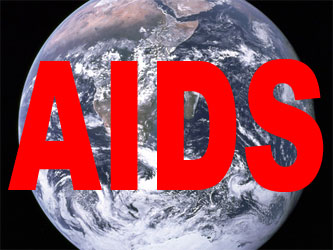Circumcision reduces HIV/AIDS infection in men
Circumcision reduces HIV/AIDS infection in men
mongabay.com
December 13, 2006
Medical circumcision of men reduces their risk of acquiring HIV during heterosexual intercourse by 53 percent according to a University of Illinois at Chicago study.
The results were so compelling researchers stopped the trial early to protect the health of participants. The study’s safety board recommended that all men enrolled in the study who remained uncircumcised be offered circumcision.
“Circumcision is now a proven, effective prevention strategy to reduce HIV infections in men,” said Robert Bailey, professor of epidemiology in the UIC School of Public Health and principal investigator of the study.
The clinical trial enrolled 2,784 HIV negative, uncircumcised men between 18 and 24 years old in Kisumu, Kenya. A news release from the University of Illinois at Chicago explains:
-
Half the men were randomly assigned to circumcision, half remained uncircumcised. All men enrolled in the study received free HIV testing and counseling, medical care, tests and treatment for sexually transmitted infections, condoms and behavioral risk counseling for 24 months.
  Robert Bailey, professor of epidemiology and biostatistics, School of Public Health, University of Illinois at Chicago. Photo: Roberta Dupuis-Devlin/UIC Photo Services. |
The preliminary results showed that 22 of the 1,393 circumcised men in the study contracted HIV, compared to 47 of the 1,391 uncircumcised men, a 53 percent reduction in HIV infection.
“With these findings, the evidence is now available for donor and normative agencies, like WHO and UNAIDS, to actively promote circumcision in a safe context and along with other HIV prevention strategies,” Bailey said.
“Circumcision cannot be a stand-alone intervention. It has to be integrated with all the other things that we do to prevent new HIV infections, such as treating sexual transmitted diseases and providing condoms and behavioral counseling,” Bailey said. “We can’t expect to just cut off a foreskin and have the guy go on his merry way without additional tools to fight against getting infected.”
Some 30 million people in Africa are believed to be infected with HIV/AIDS and more than 90 percent of HIV infections in African adults result from heterosexual intercourse. In the study village, Kisumu, an estimated 26 percent of uncircumcised men are HIV infected by age 25.
“This study will likely not have a large impact on the incidence of HIV/AIDS in the United States or Europe where heterosexual transmission of HIV is low compared with areas like sub-Saharan Africa and parts of Asia,” Bailey said. “However, there are other proven health benefits of circumcision, including better hygiene, fewer urinary tract infections, and less risk of cervical cancer in the partners of circumcised men.”
The study did not speculate as to why HIV/AIDS infections were lower among circumcized men.
This article is based on a news release from University of Illinois at Chicago.